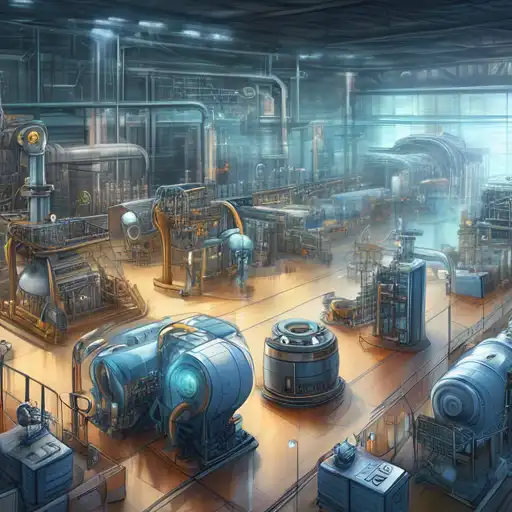The Role of IoT in Industrial Automation
The Internet of Things (IoT) is transforming industrial automation by enabling smarter, more efficient manufacturing processes. By connecting machines, devices, and sensors to the internet, businesses can monitor and control their operations in real-time, leading to unprecedented levels of productivity and efficiency.
Understanding IoT in Industrial Automation
IoT refers to the network of physical objects embedded with sensors, software, and other technologies for the purpose of connecting and exchanging data with other devices and systems over the internet. In the context of industrial automation, IoT technologies are used to create smart factories where machines communicate with each other to optimize production processes.
Benefits of IoT in Industrial Automation
- Increased Efficiency: IoT devices can predict maintenance needs, reducing downtime and increasing operational efficiency.
- Enhanced Productivity: Real-time data collection and analysis allow for quicker decision-making and process optimization.
- Cost Reduction: Automated systems reduce the need for manual labor, lowering operational costs.
- Improved Safety: IoT sensors can detect hazardous conditions, preventing accidents and ensuring worker safety.
Challenges and Solutions
Despite its benefits, integrating IoT into industrial automation comes with challenges such as security concerns and the need for significant upfront investment. However, advancements in cybersecurity and the decreasing cost of IoT technologies are making it more accessible to businesses of all sizes.
The Future of IoT in Industrial Automation
The future of industrial automation lies in the further integration of IoT technologies, leading to the realization of Industry 4.0. This next industrial revolution will see the widespread adoption of smart factories, where AI, machine learning, and IoT work together to create fully autonomous production lines.
For more insights into how technology is shaping the future of manufacturing, explore our articles on Smart Manufacturing and Industry 4.0.
In conclusion, the impact of IoT on industrial automation is profound, offering businesses the tools to achieve higher efficiency, productivity, and safety. As technology continues to evolve, the potential for IoT in industrial settings is limitless, promising a future where smart factories are the norm.
